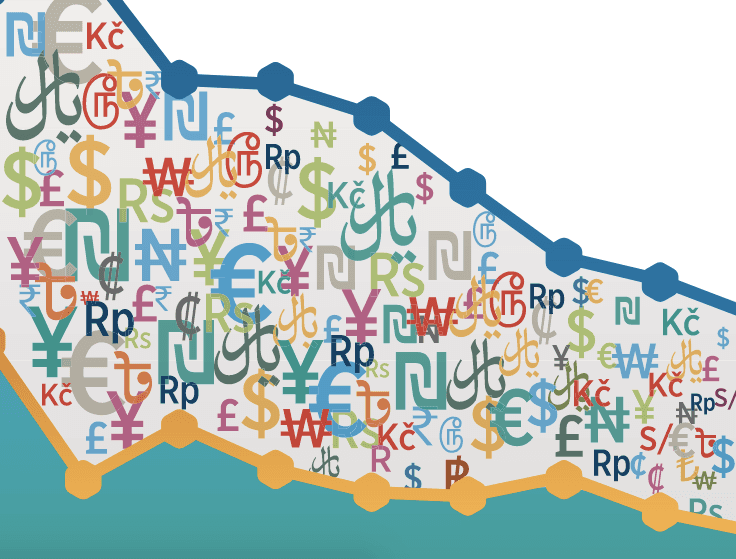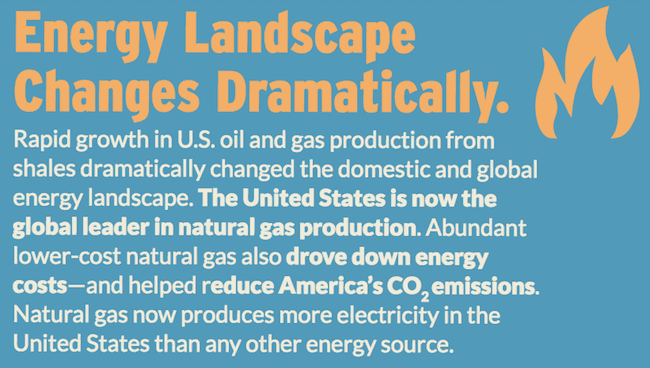NYC’s Decision Opens the Door to More Fossil Fuel Divestment Worldwide


It is easy for smaller cities like Eugene, OR; Santa Cruz, CA; Ann Arbor, MI; or Madison, WI to have conversations about, or even follow through on, fossil fuel divestment.
Those cities and towns are home to major universities with students and faculty that are vocal about where they stand on energy policy and climate action; and the local population is in general is in alignment on this issue as well.
But for a city home to over 8.5 million people of all backgrounds, not to mention a municipal workforce adamant about defending their pension plans, divestment is a risky proposition to pursue.
Nevertheless, for New York City’s mayor, Bill de Blasio, the time to wean his city away from fossil fuels is now. “We understand that climate change is an existential threat, but we do not accept that it is inevitable,” he wrote last week in an op-ed on the Washington Post. “We know many of our national leaders are in denial, but we will not wait for their help.”
The strategy on which de Blasio’s administration is embarking has two moving parts. First, the city is suing major oil companies for alleged damages linked to climate change. Whether this strategy will work is a dubious prospect. Energy companies have deep pockets, and will fight this litigation tooth and nail. Furthermore, few cities have nearly the same level of resources or will as New York City or some U.S. states that are also embroiled in lawsuits with the energy sector. It could take years before either a legal decision or settlement are reached. Far more practical is the Big Apple’s plan to spend $20 billion on a resiliency plan so that homes and businesses are buttressed against rising seas and more vicious storms in the near future.
What could actually work, and could turn more heads in energy company boardrooms across the country, is for more retirement funds to walk away from fossil fuel investments. Managers of the city’s five pension funds have been tasked to sell the securities of the estimated 190 fossil fuel companies included in the city’s investment portfolios. That sum totals about $5 billion out of the city’s total funds, which at first sounds like a stratospheric amount.
But with the city’s pension plans currently sitting atop a pot of $189 billion, New York City’s divestment strategy should not impose too many risks, if any, on the city’s long-term pension performance. And given the fact that more companies across several sectors are investing in renewables and are cleaning up their supply chains, fund managers should not have too many problems finding more palatable investments.
Other massive pension funds are also on track to divest from fossil fuels, including New York’s Common Fund, which manages over $200 billion in assets.
Divestment has its detractors. Common arguments against this tactic is that those equities are simply sold to another investor. In addition, whether that transaction hurts the company – or the selling fund – on the ledger sheet is open to debate. Some experts suggest that organizations hold onto those shares and use them as leverage to pressure companies to change their business practices.
Yet despite some shifts, such as shareholders of ExxonMobil approving a resolution to report climate change risks earlier this year, the evidence suggests energy companies are not listening, and are continuing to carry on with business as usual.
But if more funds like that of New York City’s pension plans shed their fossil fuel investments, other organizations may follow this lead – and also make it clear that investing in these types of securities carries a stigma.
Image credit: Christopher Burns/Unsplash
ExxonMobil Plans to Sue Climate-Impacted Communities


There's a benefit to being a big oil company and owning property in the third-most populous county in oil-rich Texas: When you speak out, people listen. More importantly, they then report the news.
ExxonMobil has asked the Tarrant County District Court, in Fort Worth, to permit the oil company to challenge a variety of high-ranking government officials about their roles in suing oil and gas companies. The company also wants to question a Hagens Berman lawyer which it says had a part to play in crafting the thinking behind the suits.
The 61-page request for depositions reflects ExxonMobil's exhaustive research into various communities' efforts to hold the oil and gas industry accountable for climate change. Interestingly though, its focus isn't in countering the states, cities' and counties' accusations, but in reorienting the debate in the courts.
The petition alleges that the 16 officials named in the deposition request were actually "opportunistic politicians" who colluded in an attempt to "stifle ExxonMobil's exercise, in Texas, of its First Amendment right to participate in the national dialogue about climate change and climate policy."
These individuals, Exxon told the court, "are abusing law enforcement authority and legal process to impose their viewpoint on climate change," actions, the plaintiff alleges, places ExxonMobil "directly in that conspiracy’s crosshairs.
"Even though it has long acknowledged the risks presented by climate change, supported the Paris climate accords, and backed a revenue-neutral carbon tax, ExxonMobil has nevertheless been targeted by state and local governments for pretextual investigations and litigation intended to cleanse the public square of alternative viewpoints."
According to ExxonMobil, the lawsuits that have emerged in recent years on the part of California, Massachusetts and New York communities were actually a coordinated effort that it calls the "La Jolla playbook," named after a climate accountability workshop that took place in La Jolla, Calif in 2012. The intent of the workshop was to review some of the lessons that communities learned during the decades-long effort to hold tobacco companies accountable for healthcare costs and deaths.
But according to the request, the La Jolla workshop was an effort to find ways to force "the targets" (the oil companies) to go along with uniform views on global warming.
The substance of the petition hinges on ExxonMobil's deep research into the personal lives and job responsibilities of the 16 public officials. It included public documents to allege that the officials share responsibility for failing to disclose the same sense of urgency about climate risks to their own communities and shareholders.
"The stark and irreconcilable conflict between what these municipal governments alleged in their respective complaints and what they disclosed to investors in their bond offerings indicates that the allegations in the complaints are not honestly held and were not made in good faith.”
The news that Exxon planned to challenge government officials preempted another legal announcement last week: that the City of New York was joining the battle to sue Big Oil. The city is the latest public entity to allege that ExxonMobil, Royal Dutch Shell and other oil and gas had the knowledge and technology to anticipate that their businesses would impact global climate conditions as early as the 1980s. The suits also allege that Exxon may have concealed some data from stockholders that would have revealed the negative impacts of the company's high-carbon emissions.
Exxon has deflected the latest challenge, asserting that federal courts aren't the arena in which climate change will be solved.
"Reducing greenhouse gas emissions is a global issue and requires global participation and action,” Scott Silvestri, spokesman for ExxonMobil said last week.
But what about when businesses fail to take action in response to such calls for action? That's the issue that is now being raised by New York City and other communities, which allege companies that don't address their potential for high-carbon emissions are effectively creating opportunities for trespass and destruction of properties from a known threat: climate change. The litigants allege that companies should then be held accountable for damages.
ExxonMobil: When is a good time to act?
Exxon's allegations that government officials colluded by attending a workshop about previous environmental and social lawsuits raises some interesting questions about the role of public officials. Communities expect their representatives to stay informed, connected and experienced when it comes to addressing potential threats against their homes and cities. And taxpayers expect them to remain active and vigilant in those efforts, as well.
Businesses -- including oil companies -- have learned that there is a benefit to sharing information and coalescing effort. Governments have too, especially when it comes to building action against today's greatest environmental threat.
So it isn't surprising that ExxonMobil has focused its efforts on a selection of government staff members who may have a broad-based role in addressing accountability in their communities. The actual issue that is at stake -- climate change and the environmental dangers that are part of the broader dialogue Exxon has referenced -- aren't really being addressed however, when officials are made to defend their reputations.
But the petition also raises a question about how and when we expect governments and businesses to take a stand. According to Exxon, if climate impacts are pressing enough a topic for litigation, it should be included in public entity's investment disclosures. And it should paint a line for those same government officials when it comes to their own stock purchases. According to the Times Union, Attorney General Eric Schneiderman's investment in an asset company whose top Energy ETF holding was ExxonMobil was duplicitous.
But aren't those investments suggestive of the very dialogue that oil companies say they want? Investors buy shares for many reasons, and as we have reported in the past, one is to effect change in a company, an industry or their ideals. It's that same ambition for change that in recent years has led to numerous lawsuits against corporations that have resisted that call for downsizing in the carbon-based energy sector.
Still, the latest shot across the bow by ExxonMobil highlights the need for governments with to be mindful of how their actions are perceived, especially when it comes to how it is presented before the courts. It's a lesson that Exxon, with its decades of data on the destructive impact of carbon emissions, is realizing as well.
Flickr image: Mike Mozart
U.S. Coal on the Ropes as Global Renewable Energy Developers Take the Reins


As if the U.S. coal industry didn't have enough bad news last week, a new report from the International Renewable Energy Agency gives it about two years before renewable energy outpaces the global market for fossil fuel power generation. According to the report, "the best" wind and solar projects will beat fossil fuels on cost in 2019, and other renewables will come out ahead by 2020.
Trump or no Trump, renewable energy is here to stay
U.S. President Trump rolled into the White House on a promise of bringing back coal jobs, but the new IRENA report illustrates why the deck was already stacked against coal by the 2016 presidential election cycle.
The now-familiar factor of technology improvements plays a key role of course, but the IRENA report zeroes in on another critical element that was already in play by 2016.
The global cadre of seasoned renewable energy developers was once limited to a smattering of niche companies, but in the past 10 years the field has exploded, leading to increased efficiencies all along the renewable energy supply chain.
IRENA explains:
Competitive procurement practices together with the emergence of a large base of experienced medium-to-large project developers competing for global market opportunities, are cited as new drivers of recent cost reductions, in addition to continued technology advancements.
Adding fuel to the fire, legacy oil and gas companies are on the hunt for experienced renewable energy developers to diversify their assets.
A recent case in point is BP. The company's high profile "Beyond Petroleum" campaign launched in 2000, but it died on the vine when supportive technology, policy and consumer demand failed to materialize. Now that all three legs of the stool are in place, BP rekindled its interest in renewables last year by investing $200 million in a new partnership with the experienced solar leader LightSource.
Another good example is Shell's acquisition of Texas-based MP2 Energy last fall. The diversified company is credited with developing a leading demand-response portfolio that pulls all the levers in the renewable energy field, including distributed energy generation and energy efficiency.
Shell expects to combine the trading and marketing expertise of Shell Energy North America (SENA) with MP2 to challenge the conventional energy providers:
MP2 is an energy leader in Demand Response Solutions and is developing new and innovative approaches to on-site generation management. These strengths now combined with SENA's trading capabilities, market knowledge and balance sheet result is an entity that can compete with the largest and most sophisticated energy providers delivering electricity across the U.S.
In 2016 Shell also made a big move into offshore wind through a partnership with the sustainable energy company Eneco.
This all adds up to a considerable amount of investment firepower combining with experienced developers, a maturing supply chain and economies of scale. None of these factors are likely to go away any time soon.
The IRENA Renewable Energy Report
As for competing with fossil fuels on cost for power generation, the new IRENA report has nothing but good news for renewables:
Global weighted average costs over the last 12 months for onshore wind and solar PV now stand at USD 6 cents and USD 10 cents per kWh respectively, with recent auction results suggesting future projects will significantly undercut these averages. The report highlights that onshore wind is now routinely commissioned for USD 4 cents per kWh. The current cost spectrum for fossil fuel power generation ranges from USD 5-17 cents per kWh.
Most notably, conventional solar and onshore wind projects will dip significantly below fossil fuel costs, at USD 3 cents per kWh.
Costs for concentrating solar and offshore wind are higher, but IRENA foresees that projects commissioned between 2020 and 2022 will hit the range of USD 6-10 cents per kWh. At that level, the technologies will continue to be deployed.
The US Department of Energy, for one, looks to be a continued source of support for offshore wind and concentrating solar deployment. The agency engaged in a vigorous program to promote those technologies under the Obama administration, and those efforts are still ongoing.
According to IRENA, other renewable energy projects in the past 12 months -- bioenergy, geothermal and hydropower -- are also competing "head to head" on costs with fossil fuels.
All in all, IRENA projects that all commercial available renewable energy technologies will compete -- and in some markets, undercut -- with fossils on price by 2020.
More good news for U.S. renewable energy
Speaking of the Department of Energy, just last week the agency closed the door on an ill-advised attempt to protect outdated coal power plants. In practically the same breath, it announced an important new initiative aimed at the electrification of all sectors of the economy -- with a heavy assist from renewables.
Last week the U.S. Energy Information Administration underscored how quickly the renewable energy trend has overtaken the power generation field, with a new report titled, "Nearly half of utility-scale capacity installed in 2017 came from renewables," at 12 gigawatts or so. EIA estimated the total in utility-scale capacity additions for 2017 at about 25 gigawatts.
EIA, which operates under the auspices of the Energy Department, noted that a small-scale renewable energy also made a good showing, with 3.5 gigawatts.
While the power generation sector is moving rapidly toward decarbonization, carbon emissions from the transportation sector remain stubbornly high, demonstrating the importance of the Energy Department's new electrification initiative.
In addition to power generation and transportation, the agency's "Electrification Futures Study" is examining residential and commercial buildings as well as industrial energy users.
The goal is to quantify the impacts of widespread electrification, enabling energy planners to smooth the transition to a decarbonized economy.
Image (screenshot): via IRENA.
NGOs Pressure BlackRock, JPMorgan to Stop Funding Oil Exploration in the Amazon


Last November, the NGO Amazon Watch and activist platform CREDO accused several global financial institutions of having strong links to reported human rights violations and environmental degradation in the Amazonian region of Ecuador and Peru.
Last week, the organizations announced they had delivered over 120,000 signatures on petitions that are urging BlackRock, Inc. and JPMorgan Chase to stop the financing of what activists say are destructive oil exploration activities in the Amazon.
Leaders from Amazon Watch and Credo insist that the push to drill for fossil fuels in remote regions of the Amazon comes at a cost to local indigenous populations. Many of these communities, according to several reports, are usually not consulted before such exploration occurs on lands where they have lived for generations.
Both NGOs also complain that the quest to find petroleum in this region also threatens the Amazon rainforest’s rich biodiversity. Furthermore, the authors of the November report assert that the harvesting of such resources would contribute to the world falling in danger of missing future Paris Agreement climate goals by a “long shot.”
And none of this would be happening in the first place, says Amazon Watch, if the likes of BlackRock and JPMorgan did not have a leading role of financing these oil exploration projects in the first place.
Amazon Watch claims that JPMorgan has close to $113 million in debt and equity investments in GeoPark, Frontera Energy and Andes Petroleum, the largest companies with the largest investments in what the NGO calls “the last fossil fuel frontier” in the Western Amazon.
Meanwhile, the group’s researchers concluded that BlackRock has holdings amounting to $557 million in stocks and bonds of these three companies. And the vast majority of that sum, $553 million, is invested in Andes Petroleum’s parent company, Sinopec. Based in China, Sinopec has been under investigation by the U.S. and other countries over an alleged bribery scandal that has unfolded over the past year in Nigeria.
“The investments highlight the gap between how many major corporations ― including most big banks and financial firms ― spend their money and the public positions they take on climate change,” wrote Alexander C. Kaufman for HuffPost last fall.
JPMorgan, for example, has described its climate action agenda as a plan “to source renewable power for 100 percent of our global energy needs by 2020 and facilitate $200 billion in clean financing by 2025.”
And last summer, a BlackRock managing partner generated headlines when he succinctly declared that “coal is dead.” The company told clients “investors can no longer ignore climate change,” and also offers a roadmap that it says can help clients to navigate through climate change risks.
From Amazon Watch’s point of view, these financial institutions’ public expressions of supporting climate change efforts is mere window dressing when juxtaposed with the actions of the companies in which they are investing. The NGO is urging investors and customers to pressure the banks to divest from these projects; and if JPMorgan and BlackRock do not reverse their lending practices, then citizens should stop conducting business with these financial giants.
“Failing to recognize and act on these risks means that these financial institutions — and ultimately their investors, customers, and owners — stand to lose real cash from climate change and their consciences from knowledge of rights violations being committed,” concluded the authors of the Amazon Watch report.
Image credit: Rainforest Action Network/Flickr
In Michigan, Walk for Warmth Combines Corporate and Grassroots Action to Help with Winter Heating Costs


This article series is sponsored by Consumers Energy and went through our normal editorial review process.
As within much of the U.S., economic prospects have improved across Michigan. But a recent report concluded that the poverty rate actually increased in about half of the state’s communities over the past decade. And with winter now blanketing Michigan, where daily low temperatures often fall under 20°F, this time is a reminder of how some of the state’s residents struggle paying off those expensive winter heating bills.
To learn how both companies and individuals have banded together to help vulnerable residents during the difficult winter months – while inspiring these same people to take action and pay it forward – TriplePundit (3P) recently interviewed Kate White, Executive Director of Michigan Community Action, a coalition of nonprofits committed to fighting poverty across the Wolverine State. Prior to joining the organization, White had a long career working within legal aid programs, other nonprofits and government agencies. “I made the switch to Michigan Community Action because of the values we share in fighting poverty, as we work with those who need a hand up, not a handout,” said White.
One of the many initiatives on which Michigan Community Action works is Walk for Warmth, which operates exactly how it sounds: community walks, organized at both indoor and outdoor venues, raise awareness, and funds, to help out citizens who face difficulty in paying their home heating costs. Walk for Warmth is a decentralized program, reflecting Michigan Community Action itself, which is a network with 29 chapters throughout Michigan. Across various cities and counties, local groups schedule and launch walks. All Walk for Warmth events keep 100 percent of the funds locally in the county in which they are raised.
Furthermore, each Walk for Warmth operates slightly differently. As White explained, some participants pledge to raise funds; others may just show up and drop off a check on the day they join the event. “It is both the mission of our organization, as well as the people participating, to remind people that it’s cold out there, and we need to show the community that we care for you,” said White.
The vast majority of funds are raised by local community groups and individuals. Walks in adjacent Livingston and Oakland Counties in the greater Detroit area, for example, raised over $172,000 last year.
Contributions also come from companies, including Consumers Energy, a Michigan public utility that provides power to about two-thirds of Michigan’s residents. According to White, Consumers Energy offers two strengths to Walk for Warmth. First, the utility matches donations by its employees and any participating family and friends. Next are the optics: Consumers Energy’s employees and retirees often attend the walks, helping to generate buzz and make these events a success from county to county. “They’re a wonderful corporate citizen,” said White as she summed up the utility’s support.
During an average year, Michigan Community Action estimates that funds raised by Walk for Warmth help approximately 10,000 families. But this year, the coalition is on pace to assist as many as 11,000 to 12,000 families. That spike in number is partly because of the potential effects the ongoing cold snap across the eastern U.S. could have on propane, the fuel often used for heating in rural areas and Michigan’s Upper Peninsula, where natural gas lines do not exist. Current supplies and prices for propane are for now relatively stable in Michigan compared to elsewhere in the U.S. But as White warned, “We’re watching the situation closely for propane, as there are market forces affecting some families’ access to this fuel.”
In the big picture, Walk for Warmth’s long-term impact soars far beyond helping people out during the brutally cold winter months. The program is a gateway to community involvement, improving quality of life and even lifting families out of poverty. “One thing we find is that once we help a family get through the winter, they are often eager to give back,” White said. “People want a connection to their community, and when they do help out, they are willing to give back when they can. They just don’t want a handout.”
That repayment, explained White, runs the gamut from helping local food banks pack boxes to volunteering in local Head Start programs.
Furthermore, a family seeking help with heating bills may find out they can gain additional benefits to boost their financial security. “One of the things that this program can lead to is that we might be able to help with assistance in other ways, such as screening their homes to see if they qualify for weatherization,” said White. “If they own their home, then can we come in and weatherize it. Or there may be a utility program that can help them pay for a more energy-efficient furnace.”
In other instances, the family may just need some energy education, as in tips reminding them to turn down their water heater’s temperature when it is not needed, or how to manage their home's thermostat better. Or it could just be that a broken window pane needs to be replaced, so the solution could be as simple as finding a local carpenter to fix it.
No matter what the outcome may be, families may see their utility bills reduced, decreasing the need for assistance during future winters.
Meanwhile, families seeking this assistance could also be screened for other services. They may qualify for local commodity food or nutrition programs. Perhaps their kids can be enrolled in Head Start. If a mother is pregnant, she can be referred to local clinics as well as the WIC food and nutrition program. They may even find out they may be eligible for an earned income tax credit.
White rounded out her talk with 3p by reminding us that there is usually no single reason why many families struggle this time of year – and at the same time, that hand up can help them rebound and recover from hard times. “When we work with families, we find it’s not one thing, but a series of bad events,” White said. “Someone lost a job, got sick, or a car broke down . . . it’s not one little thing that pushed them over the edge.”
Hence the $410,000 Michigan Community Action raised last year has gone a long way. And more walks will continue to be scheduled. This has proven to be a stubbornly cold winter, with its harshest impact left on citizens who are most vulnerable.
It's Lights Out for Sam's Club Workers, Despite Trump's New Tax Law


Walmart is among the high profile companies touting year-end employee bonuses as a positive outcome of the new tax law championed by President Trump. However, critics of the new law have warned that it is a "ticking time bomb" that will monkeywrench an economy that is already doing quite well, and Walmart's recent closure of its 63 Sam's Club stores could be Exhibit A in that argument.
Bonuses and pay raises tell part of the new tax law story...
First, the good news: as of this writing, Walmart is still featuring a January 11 press release on its newsroom web page, under the headline "Walmart to Raise U.S. Wages, Provide One-Time Bonus and Expand Hourly Maternity and Parental Leave."
The press release outlines how "associates in the U.S. will share in tax savings" as a consequence of the new tax law.
Walmart received a generous helping of good publicity for the announcement, chief among them the provision of a one-time bonus of $1,000. However, on closer reading of the press release the $1,000 applies only to associates with at least 20 years of service, with lesser amounts provided to others.
A little more straightforward is a raise in the company's starting wage to $11 per hour, beginning in mid-February. However, the press release clarifies that other wage increases have already been planned for 2018.
Other benefits may have also been in the works before the new tax law took shape. Among those, Walmart cites "an expanded parental and maternity leave policy" for full-time hourly associates and salaried associates, as well as a total of $5,000 in adoption benefits.
In fact, just about one year ago, on January 20 2016, Walmart announced a pay increase for more than 1.2 million associates at Walmart U.S. and Sam's Club, an initiative the retail giant called a $2.7 billion "investment in workers." In that light, the new jump to $11 loses a good deal of its impact.
...but there's more to the story...
If you caught that thing about Sam's Clubs, you're on to something.
In last week's employee benefits announcement, Walmart specifically included Sam's Club staffers in the $11 per hour starting wage.
However, mere hours after the announcement, Walmart permanently shuttered 63 Sam's Clubs across the country. The closures took place with virtually no notice to employees.
The company plans to convert about 12 of the locations to fulfillment centers, as part of a broader response to the growth of online shopping. Presumably some of the newly laid-off workers will find jobs there.
Still, the move disrupts life for approximately 9,450 people employed by Sam's Clubs up until last week.
...and more.
Sam's Club employees aren't the only ones losing out to Walmart's broader restructuring plan.
On January 12, Bloomberg reported that the company is also cutting the positions of approximately 3,500 salaried co-managers.
The cuts were not previously made public. They come about about as the company adds about 1,700 positions under the title of assistant manager, which reportedly pays less than co-manager.
According to Bloomberg's source, the laid-off co-managers are eligible to apply for other positions. No word yet on whether or not any of those positions involve the same pay and benefits.
More trouble for Trump
TriplePundit has previously noted that mass layoffs are a feature of American business. Restructuring plans like Walmart's are usually newsworthy to one degree or another, but they don't usually reflect directly on presidential leadership.
However, the fact is that Trump himself promised that the new tax law would benefit U.S. workers. Here he is cited by The Wall Street Journal on December 14:
When I say giant, I mean giant," Mr. Trump said. “Our current tax code is burdensome, complex and profoundly unfair." He said the new plan would bring “more jobs, higher wages and massive tax relief for American families and for American companies.”
The reality is that Christmas has been over for three weeks now. The drumbeat of bad news about layoffs is piling up, and the White House has been caught flat-footed.
Business Insider, for example, noted that White House officials praised Walmart "even as the company laid off thousands of other workers and closed stores on the same day."
Here's a representative tweet from press secretary Sarah Huckabee Sanders, cited by Business Insider:
"Huge news! Truly amazing and inspiring to witness the tax cuts lifting millions of hardworking Americans up."
Treasury Secretary Steven Mnuchin also credited the new tax law with Walmart's good news:
"...They will be increasing their minimum wages, issuing bonuses, and expanding family benefits for over a million employees. Walmart is the latest company to make such an announcement as a direct result of the Tax Cuts act."
As noted by Business Insider, the White House has yet to comment on how the Sam's Club layoffs and co-manager cuts reflect on the new tax law.
If this is all beginning to sound familiar, AT&T pulled off a similar maneuver earlier this month, when it used the new tax law to mask hundreds of impending layoffs.
Comcast is another company that fired hundreds of workers after crediting the new tax law with creating new jobs.
The blowback is also focusing renewed attention on Trump's promises to restore U.S. manufacturing jobs. Last week, for example, layoffs at the Carrier factory in Indiana made the media spotlight again.
Trump's promises to U.S. coal workers and their communities have also fallen flat. Making matters worse, some of the bad news for jobs in the coal industry can be attributed directly attributed to the President's own appointees at the Federal Energy Regulatory Commission.
More pain is in store for coal miners if Trump follows through on expectations that he will pull the US out of NAFTA, the North American Free Trade Agreement, so stay tuned for more on that.
Photo (cropped): Nicholas Eckhart/flickr.
Top CEOs Urges Congress to Act on DACA This Week


As with most policy coming out of D.C., the debate over immigration is chaotic as usual, with U.S. federal courts ordering the government to renew the Deferred Action for Childhood Arrivals (DACA) program. It is doubtful whether that ruling can stand for a host of reasons, but leaders on both side of the aisle are at a minimum giving appearances that they are working on a solution. The president’s latest Twitter posts indicate that he’s backtracking on last week's willingness to work with Democrats on a deal, but as is the case with many of the president’s policies, the narrative changes about every 10 minutes.
Many corporate leaders say they have had enough, as the uncertainty over the fate of DACA and “dreamers” is affecting everything from employee morale to the potential drag on their business.
To that end, dozens of CEOs have signed a letter that has been widely disseminated and will run in major U.S. newspapers. The list includes leaders who are all over the political map, from former GOP gubernatorial candidate for California, Meg Whitman, who is winding down her tenure at Hewlett Packard Enterprises, to Jeff Bezos of Amazon and owner of one of President Trump’ harshest critics, the Washington Post.
The letter urges federal lawmakers to find a permanent and workable bipartisan solution to DACA by the end of this week. Such action would give a tight 45 days transition period to finalize protections for dreamers and end the uncertainty that is harming families and businesses alike. “Failure to act in time will lead to businesses losing valuable talent, cause disruptions in the workplace, and will result in significant costs,” concluded the letter.
Whether this sentiment will move congressional leaders is an open question mark. Last fall, over 400 business leaders signed an open letter urging Congress and the White House to pass a bipartisan “Dream Act.” At the time it looked as if a repeal of DACA would be the proverbial straw that would break the camel’s back, but as we have seen over the past several months, that camel has been able to carry a lot of hay.
These publicly posted letters give companies the appearance that they are taking a stand and trying to hold the White House and Congress accountable. But like most such letters, they do little more than score some public relations points with some stakeholders. For now, companies appear content with the holiday gift the Trump Administration wrapped for them in the shape of last month’s tax cuts.
Of course, enthusiasm over the tax cuts could change, whether or not DACA really becomes sabotaged. Businesses have plenty of other policies generating angst. As pointed out by Joseph G. Carson on Bloomberg, those cuts leave little room for the massive infrastructure projects that would really benefit businesses in the long term. TriplePundit’s Tina Casey has also shown how bonuses given to employees in the guise of celebrating tax cuts can soon appear to be empty gestures if workers end up getting laid off. Meanwhile, other companies that have promised bonuses, such as Walmart, have found that any enthusiasm over these checks became quickly muted upon the announcements of store closings - in this company’s case, the shuttering of 63 Sam’s Club locations.
So, don’t be surprised if in another six months, we see another public letter from companies imploring Washington to do something about immigration. But as always, no one really wins, and dreamers will lose once again – as they see their lives constantly on hold because of policymakers’ inability to find an action.
Democrats may just want to call the President’s bluff and agree to his infamous border to get DACA moving. After all, it is pretty clear much of the wall will be more of a fence; and as proven in remote areas such as along the Texas-Mexico border, geography – not to mention the ongoing threat of litigation – will most likely mean that wall will never get close to completion.
Image credit: Ryan Bavetta/Flickr
Transportation Now Largest Source of U.S. Emissions, While Renewables Surge


Buried under the headlines of tax reform and of course, holiday distractions, came some big news from the U.S. Energy Information Agency (EIA): after years of power generation emitting the most carbon in the U.S., that badge is now worn by the country’s transportation sector. This switch is the first time emissions from power generation were less than those from transport since the late 1970s.
Since the EIA started tracking annual emissions in 1988, emissions from transport were significantly lower than those generated by the nation’s power sector. The emissions patterns generally followed the same trajectory: when the economy would sputter, as it did during the recession of the early 1990s and fiscal crises a decade ago, emissions would both fall – only to rise again during an economic recovery.
But over the past year, a shift occurred, and the assumption that low transportation fuel prices over the past four years had something to do with this change do not tell the full story. As EIA researchers have noted, “the carbon intensity of the power sector has fallen much faster than the carbon intensity of the transportation sector.”
The automakers can point out that their cars and trucks have become more efficient in recent years, due to improved technologies and regulations. But those improvements in performance cannot match those of many U.S. utilities, which have gravitated toward cleaner-burning sources of power.
The largest factor in this transformation is the fact that last year, half of all utility-scale power capacity installed in the U.S. was from clean energy technologies.
In terms of percentage and raw numbers, the amount of new capacity from renewables added during 2017 is a big drop from the previous year. Nevertheless, the trend is unmistakable: more utilities are spurning coal when adding new power generation in favor of solar and wind power – or natural gas, the real trigger of coal’s decline. This shift is also not just happening along the coasts, either; Rust Belt states like Wisconsin are also adding more renewables to their energy portfolios.
Despite the current administration’s drive to revive the coal sector and develop an “America First” energy policy centered on fossil fuels, the combination of market forces – along with local and state directives - are pushing coal further into irrelevance. Even some of Trump’s appointees are hastening the decline of coal, with one example being the Federal Energy Regulatory Commission’s recent decision to not accommodate the Department of Energy's recent request to protect aging coal power plants.
Image credit: Pete Jelliffe/Flickr
Coal on the Chopping Block as Trump Ponders NAFTA Withdrawal


The U.S. coal industry already took one hard hit this month, when federal regulators appointed by President Donald Trump turned down a request to protect aging coal power plants. Now the President is poised to deal a knockout blow to beleaguered coal stakeholders. Trump is widely expected to pull the country out of NAFTA, the North American Free Trade Agreement, a move that is all but certain to lower the cost of natural gas and kill the market for coal power generation in the US.
With friends like these...
The first blow was a January 9 decision by FERC, the Federal Energy Regulatory Commission.
FERC is composed of five commissioners, four of whom are Trump appointees. On Monday January 9, they voted unanimously to turn down a new rate structure proposal from Energy Secretary Rick Perry. The proposal was tailored to protect aging coal and nuclear energy plants, even if more economical alternatives are available.
The FERC decision effectively yanked away one of coal's last remaining lifelines.
More economical alternatives -- low cost natural gas and renewable energy -- are already available. Natural gas has been knocking scores of coal power plants off the charts in recent years, and renewables are also beginning to compete in some markets.
NAFTA on the chopping block
If Trump decides to pull the U.S. out of NAFTA, coal would lose another lifeline: the export market for natural gas.
This one is a little more complicated than the FERC decision, but bear with me.
The Bush administration touched off a boom in U.S. shale gas production when it created a gaping loophole in federal water safety regulations. Even though Obama's EPA struggled to close the loophole, the boom has continued.
The result has been a flood of inexpensive natural gas in the domestic energy market. Aside from enabling gas to roll over coal for power generation, the low cost makes gas an attractive product for export.
Gas stakeholders successfully lobbied the Obama administration to begin relaxing restrictions on natural gas exports. The effect has been to prevent domestic gas prices from falling further.
In sum, gas exports are one of the few remaining factors that enable the U.S. coal industry to compete for power generation. Cutting the flow of gas out of the U.S. would set coal back on its heels.
Our friends over at eenews.com provide a good rundown on the natural gas export issue. Do read the piece for full details. For those of you on the go, reporter Peter Behr makes this point:
U.S. natural gas pipeline exports have doubled since 2009, according to the U.S. Energy Information Administration, almost all the growth taken in by Mexico, which is relying on U.S. gas to power its increasing electrification...
Behr also notes that although NAFTA is credited with an across-the-board $64 billion trade deficit with Mexico in 2016, the U.S. actually came out ahead in the energy sector.
That includes refined petroleum products as well as natural gas. As TriplePundit's Jan Lee described last fall, a NAFTA pullout would harm all three fossil fuel stakeholders: coal, petroleum and natural gas.
Behr also describes how U.S. gas stakeholders are gearing up for a significant hike in production. According to one analyst, a glut fueled by NAFTA withdrawal could send gas prices spiraling below $3.00 per thousand cubic feet, pushing more coal power plants out of the picture.
Whither Trump?
The President has been threatening all year to pull out of NAFTA, and a consensus is building that he will do it, at least partially.
Reuters scooped the news on January 10:
Canada is increasingly convinced that President Donald Trump will soon announce the United States intends to pull out of NAFTA, two government sources said on Wednesday...
The ripple effect, Reuters reports, is already spreading to Mexico:
Mexico will leave the NAFTA negotiating table if U.S. President Donald Trump decides to trigger a 6-month process to withdraw from the trade pact, three Mexican sources with knowledge of the talks told Reuters on Wednesday.
NAFTA critics have pointed to a number of shortcomings since its inception in 1994. However, for all its faults NAFTA has been the way of the world for more than 20 years, and U.S. companies have adjusted to work within that framework.
Almost nobody is in favor of a NAFTA pullout, and Trump would have ample support from both sides of the aisle if he stays at the negotiating table.
On the other hand, Trump's recent decision to open up the Atlantic coast to offshore drilling is a clear demonstration that he intends to stick to his campaign promises, if only in a temporary and superficial way.
After all, shortly after announcing the new offshore drilling policy, Trump's administration granted an exemption to Florida.
The U.S. coal industry still exports a relatively large amount of coal to Mexico and Canada, so perhaps Trump will engineer a NAFTA carve-out for coal as well as natural gas and petroleum.
Based on his presidential track record, though, the picture looks gloomy. In addition to coal power plant closures on Trump's watch, the industry has suffered another bankruptcy announcement and at least one coal mine closure.
Image (screenshot): US Department of Energy.
Get Ready: USDA Projects A Whopper of A Rise in Meat Consumption


The U.S. Department of Agriculture has big news for consumers, and even bigger news for the country's beef and chicken producers: All that kerfuffle about the success of plant-based, vegan hamburgers is well, just that. Real red meat producers still have the commanding voice in the market, thank you.
Americans' taste for red meat has been projected to rise for some years now, ever since late 2008, when rising grain prices forced a drop in meat production. Ranchers continue to struggle with drought conditions in California and quirky grain prices throughout the world.
But according to USDA projections, that's changing. This year.
Annual red meat and poultry consumption is due to reach an all-time high in 2018, says the USDA's Economic Research Service, the department that crunches all the numbers when it comes to production and consumption. At 222 lbs per person, U.S. consumption of meat products comes out to a projection of 14 percent more consumption of meat than 5 decades ago when tanking up with protein-rich beef and chicken was not only considered healthy but America's favorite dining pastime.Just think McDonald's, Wendy's and Burger King, which all rose to fame in the 1960s.
And as Quartz writer Chase Purdy points out, that calculation is actually " a gauge for actual consumption drawn from sources up and down the food-supply chain, not a hard-and-fast number." In other words, the breakdown of how much Americans' eating habits are contributing to the domestic food supply is a bit more complex.
The real statistic to note is the rise in animal food production. The amount of meat on the U.S. market rose more than 60 percent between 1990 and 2018, while the amount of consumption of those quintessential American meat dishes actually only rose by 12 percent.
That growth on America's farms and ranches is expected to continue. "[Meat] consumption in the U.S. is likely to undergo a noticeable shift over the next decade as production of beef and pork grows and prices decline," writes Flavius Badau, an economist with the USDA. "USDA baseline projections, which provide a longrun view of the U.S. farm sector, show that production of beef and pork will expand steadily between 2016 and 2025, driven by lower feed costs and strong meat demand domestically and abroad. Beef production and pork production are projected to grow by 11.7 percent and 10.3 percent, respectively, during the period."
In other words, it has less to do with how much meat consumers buy and a lot more to do with how much surplus there is on the market.
"The reason for the price decrease has nothing to due with demand—which remains as high as ever in the U.S.—but instead with an increase in the supply of cattle," wrote Brad Tuttle, a Time.com columnist, back in 2016. More cattle-fattening corn stocks, which have been decreasing in price, yield bigger, fatter cows and yes, you guessed it, more meat for the supermarket.
Of course, cheap corn isn't the only thing driving cattle production prices. Cheaper fertilizer. The declining price of those three key ingredients of good soil, nitrogen, phosphate and potash can have a profound say in the abundance and cost of grains and ergo, the foods we eat. Consumer trends, notes Tuttle, is only a part of the reason that food producers bump up their stocks.
But as Dr. Neal Barnard, medical researcher and founding president of Physicians Committee for Responsible Medicine asks, just because the meat industry has beefed up its stocks, should we? Do we really have to go there?
"For the health of Americans and the environment, let’s hope that this prediction proves false," says Barnard in his recent op-ed in The Hill. "Nobody outside of the meat industry would argue that eating 222 pounds of meat is healthful."
And even the USDA would agree. It's been advocating more fruit and vegetables and less meat and dairy for years, to the likely consternation of industries that would lose sizable profits if we all followed USDA guidelines to the T.
Still, Barnard points out, projections aren't always correct. People change and so do viewpoints. U.S. presidential elections are a good example of that fact, but market trends are an even better one.
The rise in popularity of products like Beyond Meat, Impossible Foods and other plant-based alternatives suggest that Americans are quite aware that decreasing meat consumption is a smart move, both for humans and for the planet. Scientists point out that our food production methods have a role not just in our health but in the prominence of global warming.
But will the trend toward vegetarian and vegan food consumption continue? And will meat producers take the tip? Some conventional meat producers are already beginning to explore alternative options to capture the vegan-leaning consumer.
The question that is left then, is whether it's time for the USDA and its research service, ERS, to delve as deeply into the projections and benefits of alternative, plant-based foods as it regularly does of products that come from meat and dairy industries.
Perhaps it's time for a whole new category on the ERS website that touts the surprising growth of disruptor food industries; blog posts that talk about their market successes and how-to-find advice on pea protein-based organic products that are now competing with cuts of beef, chicken and pork.
Maybe projections that work far into the future (everything being relative, a decade is a long time to project a beef industry's confident rise from a recession), but within the scope our our formidable climate struggles. Projections after all, can say a lot about market trends, but they can also help map the future of industries that many of us still have a lot to learn about.
Flickr image: Kevin Jarrett